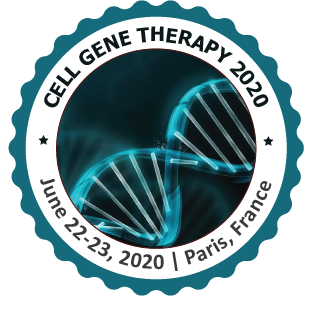
Tongri Liu
ALLIFE Medicine, Birmingham, UK
Title: In Pursuit of the First Clinical Trial for a Chinese iPSc Derived ATMP (iPSc-Endothelial Progenitor Cell) in the UK
Biography
Biography: Tongri Liu
Abstract
Endothelial injury plays an important role in the pathophysiological process of Atherosclerosis (AS) and restenosis after angioplasty. Accelerating the repair of endothelial injury can effectively inhibit smooth muscle cells proliferation and intimal hyperplasia, thus preventing atherosclerosis and restenosis after angioplasty. Endothelial progenitor cells (EPC) are precursors of endothelial cells, which can be directed to differentiate into endothelial cells. Endothelial progenitor cells (EPC) are involved in the repair of endothelial injury.
The limited EPCs extracted from peripheral blood often cannot reach the clinical dosage. In this study, the technology for reprogramming induced pluripotent stem cells (iPSc), developed in Allife Medicine based on the Yamanaka factors, was adopted. Somatic cells can be reprogrammed into iPSc by importing specific transcription factors, including Oct4, Sox2, c-Myc and Klf44 (also called Yamanaka factor), which can effectively induce somatic cells into stem cells, namely the iPSc. That is to say, the reprogramming technology has enable us to “initialise” somatic cells to regain stem-cell functions, giving iPSc similar functions as embryonic stem cells, which can, in theory, be differentiated to any tissues, in cluding EPC, without creating an embryo. The iPSc reprogramming technology, giving iPSc the ability of almost infinite proliferation, plus the technology of differentiating iPSc to EPCs, will fundamentally conquer the problem of insufficient cell numbers needed for clinical use. In addition, personalized iPSc-EPC products also provide IS patients the autologous treatments, likely resulting in lower risk and better efficacy of the therapy.

